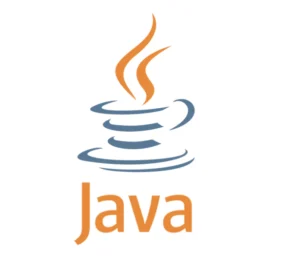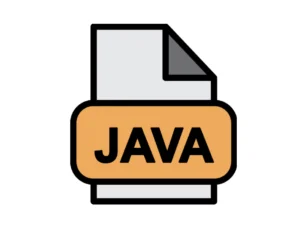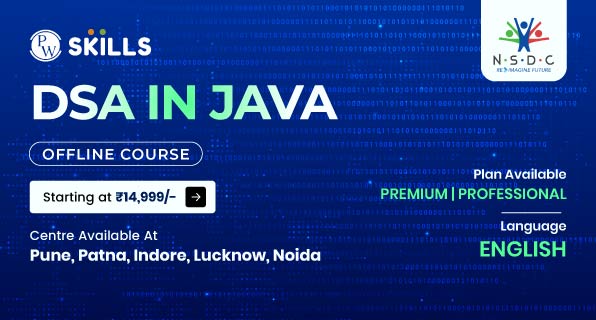Java Keywords is a set of special words one comes across during an early stage of learning Java. These words may seem simple, yet they are powerful. Each word has a predefined meaning attached to it that tells the compiler how to interpret the code. One could say not having Java Keywords in writing Java programs is akin to speaking a language without grammar.
This tutorial describes the list of Java keywords along with their usage by giving examples; it describes the differences between keywords and identifiers in Java. Also, it explores why they are called reserved words in Java and what are the uses. If you are someone with a bare knowledge as a beginner, or a professional bent on refreshing what you’ve known, this blog provides you all that you require to master the program.

What Are Keywords in Java Programming?
Java Keywords are reserved words which have fixed meanings in the Java language. You cannot use them as variable names, class names, or method names because the compiler recognizes them for certain tasks.
For example:
class Example {
public static void main(String[] args) {
int number = 10; // ‘int’ is a Java keyword
System.out.println(number);
}
}
Here in this example, int is a Java keyword because it informs the compiler that number is an integer type. You cannot rename int or use it for anything else.
In short, Java Keywords act as the building blocks of the language. Any misapplication, and your code won’t get compiled.
Difference Between Keywords and Identifiers in Java
Before getting into details, it’s important to know the difference between Java Keywords and Identifier.
Keywords: Predefined, reserved words that perform a specific function. For example: class, public, static.
Identifiers: Names you create to identify elements in your program such as variables, methods, or classes. For example: Employee, calculateSalary, numberOfStudents.
You can think of Java keywords as rules set down by the language, where identifiers are names you freely name at will, provided you do not break any rule.

Reserved Words in Java and Their Uses
Therefore, Java Keywords are often termed as “reserved words” because they are exclusively reserved for the Java compiler. Which means you cannot use these reserved words for anything else in your code.
For example, if you try this:
int class = 5; // Error: ‘class’ is a reserved Java keyword
The compiler will throw an error because class already has a meaning in Java, which is to define a class.
Reserved words allow uniform interpretation of features across Java. Wherever one may write Java code, the compiler interprets Java Keywords always in the same way.
An Exhaustive List of Java Keywords with examples
Java has 50+ keywords, and we could categorize and list them along with examples for easier understanding.
-
Data Type Keywords
int, float, double, char, boolean, byte, short, long
These are used to define variables of different data types.
int age = 22;
boolean isStudent = true;
double salary = 55000.75;
-
Control Flow Keywords
if, else, switch, case, default, for, while, do, break, continue, return
These Java Keywords control the flow of the program.
if (age > 18) {
System.out.println(“You are an adult”);
} else {
System.out.println(“You are a minor”);
}
-
Access Modifiers
public, private, protected
These define the visibility of classes, variables, and methods.
public class Student {
private int rollNo;
}
-
Class and Object Keywords
class, interface, enum, extends, implements, new, this, super, abstract, final
class Animal {
void sound() {
System.out.println(“Animal sound”);
}
}
class Dog extends Animal {
void sound() {
super.sound(); // Using ‘super’ keyword
System.out.println(“Bark”);
}
}
-
Exception Handling Keywords
try, catch, finally, throw, throws
try {
int result = 10 / 0;
} catch (ArithmeticException e) {
System.out.println(“Error: ” + e);
} finally {
System.out.println(“Execution completed”);
}
-
Object-Oriented Keywords
static, void, package, import, instanceof
import java.util.Scanner;
public class Example {
static void display() {
System.out.println(“Static method”);
}
public static void main(String[] args) {
Example.display();
}
}
-
Others
volatile, synchronized, transient, native, strictfp, assert
Each of these Java Keywords has advanced uses, particularly in multi-threading and performance tuning.
Java Keywords Explained for Beginners
If you are just starting out, the sheer number of Java Keywords may look overwhelming. The trick is not to memorize them all at once. Instead, focus on the ones you encounter while practicing. For example, beginners frequently use class, public, static, void, int, if, else, and return. As you advance, you’ll naturally learn the others.
How Java Keywords function in real projects
In real-world projects, Java Keywords help in structuring code effectively. Imagine building a student management system:
- You use class to define Student.
- You use if and else to validate grades.
- You use try and catch for handling invalid inputs.

So you see: Java Keywords are not some abstract entity; in fact, they are the very glue that is holding a Java program together.
Also Read:
- Return Statement in Java: A Complete Guide with Examples and Use Cases
- Java Scope: Master Java Scope with Simple Examples and Real-Life Use Cases
- Top 15 Java Projects With Source Code [2025]
- Top 10 Reasons to Learn Java in 2025
Boost Your Career with PW Skills DSA + Java Course
If you’re serious about mastering Java beyond just keywords, the PW Skills DSA + Java course is your perfect companion.
With hands-on projects and practical-oriented explanations, it helps you grow from beginner to pro. Trusted by students and professionals alike, get ready for real-world application through PW Skills. Enroll today and get started with your Java journey.
Keywords in Java are predefined for specific features and are thus reserved by the compiler. The compiler will throw an error in their use as identifiers. Java has more than 50 keywords, which vary with different versions of Java. Some of them are rarely used but are retained in the language. class, public, static, void, if, else, int, and return are the most commonly used by new users. Yes. All Java Keywords are in lower case. Writing Class instead of class will not work.Java Keywords FAQs
Why can't we use Java Keywords as variable names?
How many Java Keywords are there?
Which Java Keywords are important for novices?
Java Keywords are case-sensitive?



